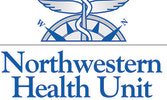Drug Alert – Increase in drug poisonings/overdose events
Northwestern Health Unit - Special To The Bulletin
Northwestern Health Unit (NWHU) has received reports of an increase in drug overdoses. While the specific substance responsible has not been identified, the effectiveness of naloxone suggests that opioids may be involved. It is unclear which drugs the substance is being sold as or mixed with, but various methods of use have been reported.
Although this report came from the Kenora area, there have also been recent reports from the Sioux Lookout area involving non-opioid drugs that contain opioids. This raises concerns about the presence of new unregulated drugs in the region that may be contaminated or laced with opioids or other sedative-enhancing compounds, increasing the risk of death. Any drug being used could potentially contain opioids capable of causing poisoning (overdose).
NWHU is working with clients and partners to raise awareness about this increased risk. If you know someone who is at risk, please share this information with them.
Know the signs of opioid poisoning:
- low, irregular, or no breathing
- loss of consciousness
- low blood pressure and heart rate
- drowsiness
- confusion
- slurred speech
- blurred vision
- pinpoint pupils or eyes rolled back
Things you can do include:
• Know the signs of opioid poisoning, have naloxone and know how to use it.
• Check in with the people you know who use substances
• Share the information with others
o Not all overdoses are caused by injecting. Inhaling or snorting can be just as deadly!
o Don’t use alone. Have someone with you, on the phone, or download and use the Lifeguard app or call NORS 1-888-688-NORS (6677).
o If using with a friend, do not use at the same time. Make sure the other person is OK before you use.
o Carry naloxone and know how to use it – although not effective on all drugs, it is effective on opioids.
o Call 911 if you think someone is experiencing a drug poisoning/overdose! The Good Samaritan Drug Overdose Act provides some legal protection to the person calling.
• If you have information about drug poisonings or other adverse drug events that happened in your community, please report them to NWHU using our online system.
• To receive up-to-date drug alerts in your inbox, you can subscribe using our Drug Alerts page.
The Canadian Dental Care Plan (CDCP) is a federal program currently offering dental care...


